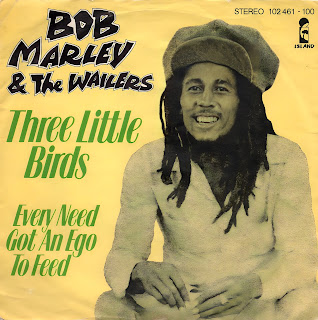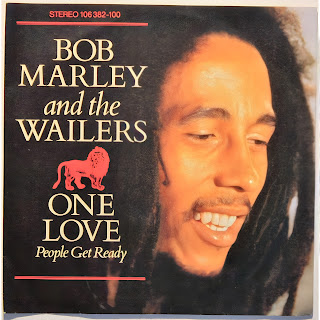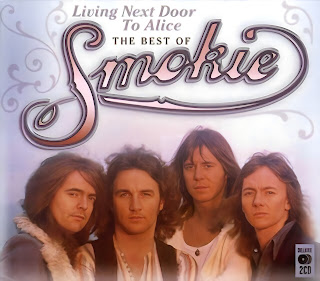Exodus: Rolling Stones #71 of 500 Greatest Albums of All Time
 Exodus
Exodus
Album: Bob Marley & the Wailers
Released: June 3, 1977
Genre: Reggae
Producer: Bob Marley & the Wailers
Bob Marley & the Wailers' ninth album, Exodus, was a critical and commercial success, peaking at number 20 on the Billboard 200 and reaching 8 in the UK.
In 1999, Time magazine named Exodus the best album of the 20th century. It numbered 26 of VH1's 100 Greatest Albums in 2001. In 2020, the album ranked 71 on Rolling Stone's list of the 500 Greatest Albums of All Time.
Exodus features a laid-back, stoned atmospherethat’s simultaneously funky and political.Sputnikmusic
Sputnikmusic noted Marley's;
"... reggae style wasn't dominant in Jamaica then, and it doesn't sound much like any reggae that came before it. Exodus is much more rooted in the blues and soul and has a little pinch of the British rock that much of his fanbase was also listening to, with a reggae façade thrown on top. But if Exodus was straight reggae, it probably wouldn't be as good as it is."
The title song topped the charts in Jamaica and reached 14 in the United Kingdom.
The title song topped the charts in Jamaica and reached 14 in the United Kingdom.
Single: Bob Marley & The Wailers
Album: Exodus
B-side: Punky Reggae Party
Released: June 3, 1977
Genre: Reggae
Songwriter: Bob Marley
"Jamming" was the third single released from Exodus, after the title song and "Waiting in Vain," The track also appears on Marley's compilation album, Legend. In the Jamaican dialect, "jamming" is getting together or celebrating.
The song contains the line, "No bullet can stop us now." On December 3, 1976, unknown gunmen shot Marley and his wife in their home. They recovered shortly afterward, and Bob moved to England. The album title reflects his 'exodus' from his home country.
Single: Bob Marley and the Wailers
Album: Exodus
B-side: Every Need Got an Ego to Feed
Released: September 12, 1980
Genre: Roots reggae
Songwriter: Bob Marley
Producers: Bob Marley and the Wailers
"Three Little Birds" is the fourth track on side two of Exodus. Released as a single in 1980, the song reached the Top 20 in the UK, peaking at number 17. The track is known for its refrain, "Don't worry 'bout a thing, 'cause every little thing is gonna be alright."
Marley received the message from birds that frequented his porch stoop in Kingston, Jamaica. Tony Gilbert, a friend of Marley who was present when Bob was writing the song, elaborated,
"Bob got inspired by many things around him; he observed life. I remember the three little birds. They were pretty birds, canaries, who would come by the windowsill at Hope Road."
However, three female singers from the reggae group I Threes, who did shows with Marley, claim it references them. I Threes member Marcia Griffiths, known for her song "Electric Boogie," remarked,
"After the song was written, Bob always referred to us as the Three Little Birds. After a show, there would be an encore. Sometimes, people even wanted us to go back onstage four times. Bob would still want to go back, and he would say, 'What is my Three Little Birds saying?'"
Single: Bob Marley & the Wailers
Album: Exodus
B-side: So Much Trouble in the World
Released: April 16, 1984
Genre: Roots reggae
Songwriters: Bob Marley, Curtis Mayfield
Producers: Bob Marley and the Wailers
"One Love" is a ska song by Bob Marley's 1965 debut studio album, The Wailing Wailer. The version on Exodus was recorded in 1977 for Island Records. The new track incorporated the Curtis Mayfield-written tune, "People Get Ready."
Marley's "One Love/People Get Ready" wasn't released until 1984 to promote the greatest hits album Legend. The single became one of his biggest hits. The original recording didn't credit Mayfield's song and was simply titled "One Love." Copyright law was not enforced for Jamaican recordings at the time.






Comments
Post a Comment